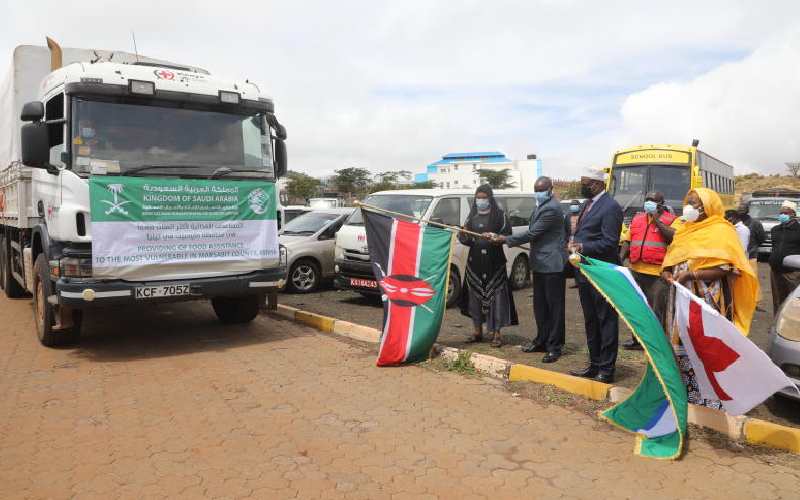×
The Standard e-Paper
Join Thousands Daily

People, and livestock are threatened by drought in Marsabit.
Food insecurity is a slow-burning national crisis. According to the National Drought Management Authority, more than 600,000 children are acutely malnourished.